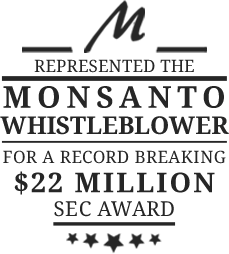








Is Whistleblowing Ethical?
One of the many reasons why individuals who are aware of securities fraud are cautious about reporting their tips to the U.S. Securities and Exchange Commission (SEC) is because they aren’t sure whether doing so is ethical.
It’s certainly an interesting dilemma to be in because you know that a type of fraud or securities violation is unethical, but you may be feeling guilty for coming forward and reporting those scheming individuals to a government agency where they could face significant penalties.
However, it is important to remember that the types of securities violations that go on within the securities industry and financial markets affect not only investors, but the public in some cases, as well. Continue reading to learn more about why blowing the whistle is so important and how you can go about protecting your identity if you are interested in becoming a whistleblower.
The Importance of Whistleblowing
There are many different ways that financial advisors, stockbrokers, brokerage firms, and other people in the securities industry can take advantage of investors and other individuals. Some of the most common schemes that occur, and that the SEC is most interested in learning more about, include:
- Money laundering
- Inadequate cybersecurity
- Embezzlement
- Insider trading
- Ponzi schemes
- Foreign bribery
- Stock manipulation
- Accounting fraud
- Unregistered securities
Take Ponzi schemes, for example. In a Ponzi scheme, there are many different investors who are being defrauded by the head of the Ponzi scheme, depending on how large the scheme is. Collectively, you could have knowledge of millions of dollars lost by the investors. Isn’t it unethical not to report such information so the fraudster can be stopped?
Even though you may feel guilty at the thought of reporting securities fraud committed by your colleague, friend, supervisor, or employer, failing to put a stop to it could ruin the lives of those who are being defrauded.
Anonymous Reporting
Reporting your tip anonymously could be the best way to avoid having anyone know that you blew the whistle. Whether you are worried about losing a friend or being terminated from your job, becoming an anonymous whistleblower could be the best option for you if you have such concerns.
In order to report your tip anonymously, you need to have legal representation so that your lawyer can report your information to the SEC on your behalf and serve as the person communicating with the SEC for you. The only time your identity will need to become known is if you are entitled to a whistleblower award, at which point the SEC will need to know who you are so they can issue your reward.
Contact a Qualified SEC Whistleblower Lawyer
If you are interested in learning more about how a highly experienced SEC whistleblower lawyer at Meissner Associates could help you report your tip anonymously, schedule a free and confidential consultation so we can further discuss the details of your case.
You can fill out the secured contact form below or give our office a call at 1-866-764-3100 when you are ready to move forward with your whistleblower complaint.
